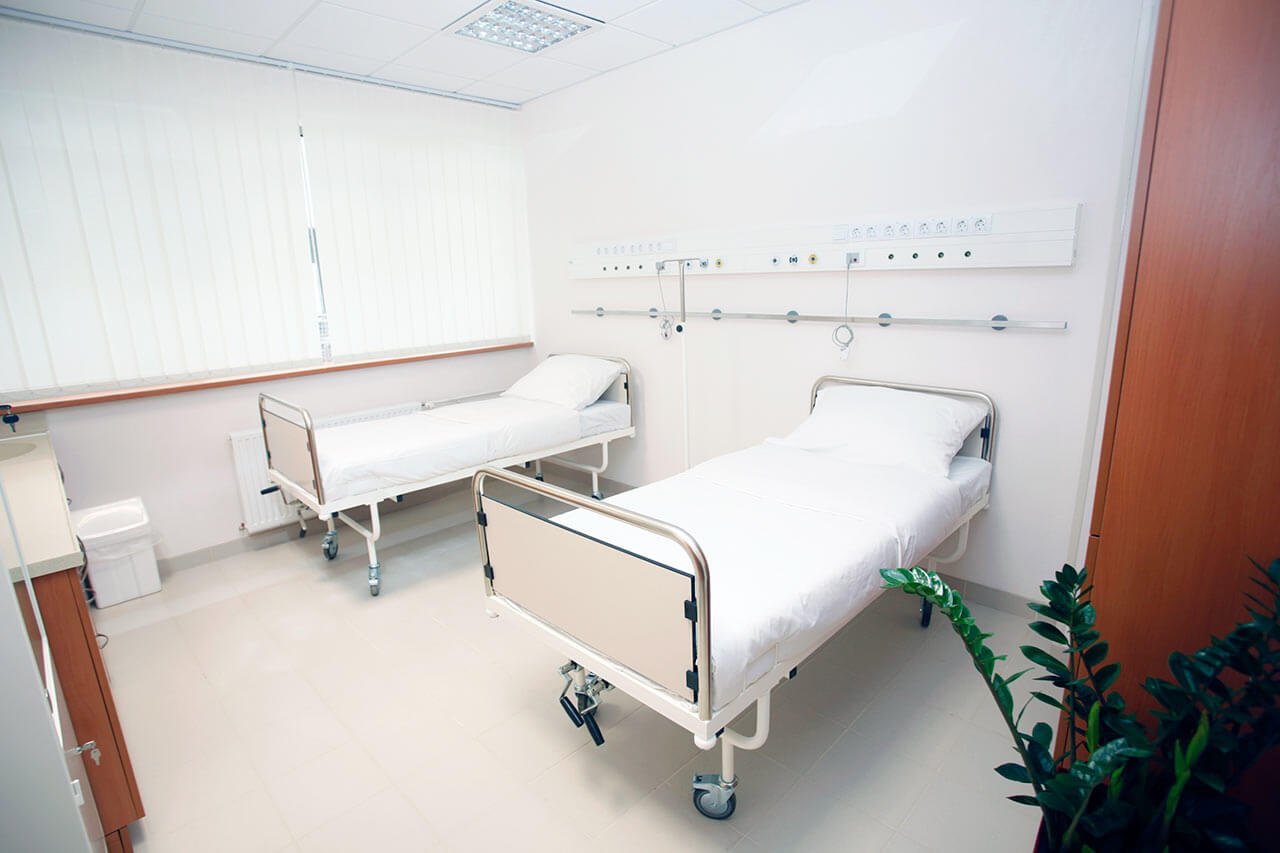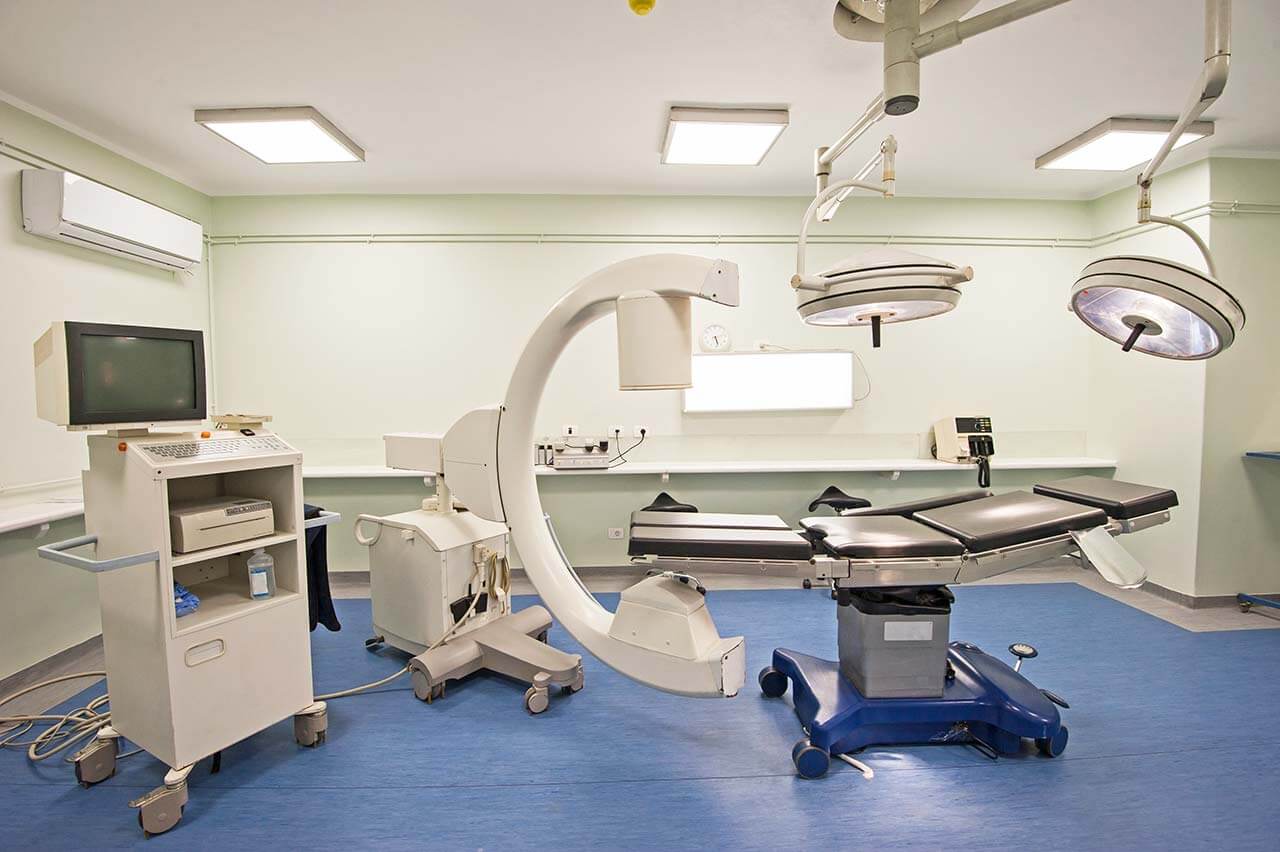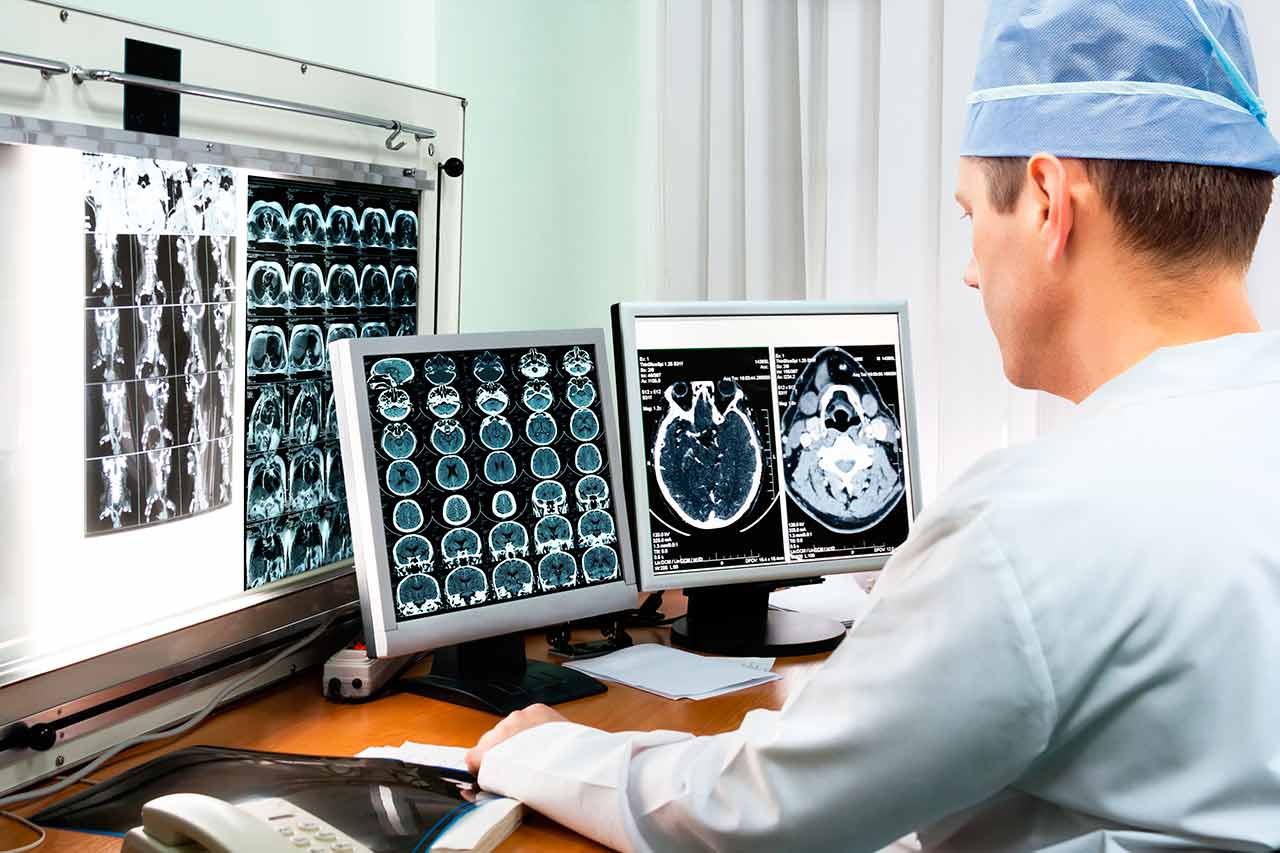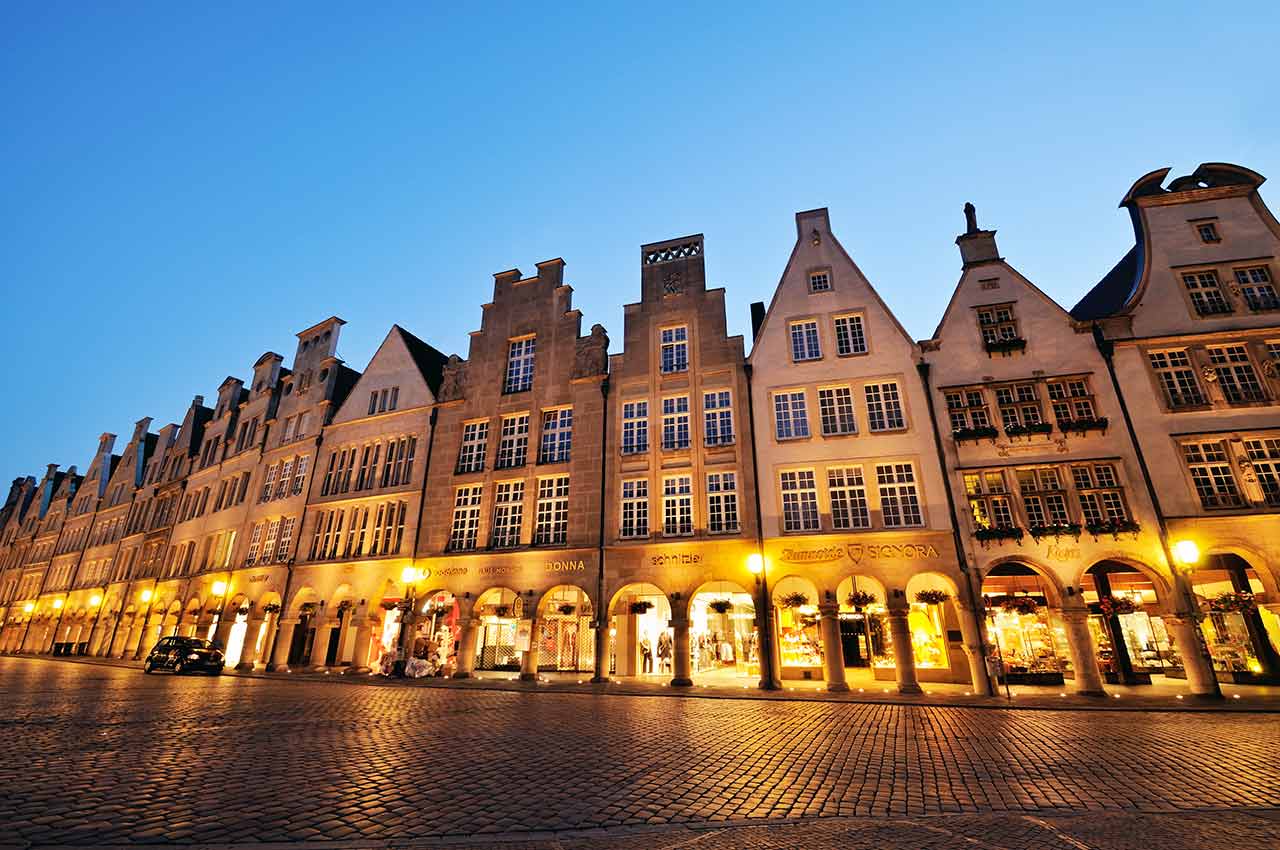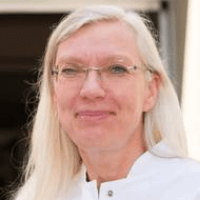
The program includes:
- Initial presentation in the clinic
- clinical history taking
- review of medical records
- physical examination
- laboratory tests:
- complete blood count
- biochemical analysis of blood
- TSH-basal, fT3, fT4
- tumor markers
- inflammation indicators (CRP, ESR)
- indicators blood coagulation
- ultrasound
- targeted therapy (1 course)
- the cost of essential medicines and materials
- nursing services
- consultation of related specialists
- treatment by chief physician and all leading experts
- explanation of individual treatment plan
Required documents
- Medical records
- Biopsy results (if available)
Service
You may also book:
 BookingHealth Price from:
BookingHealth Price from:
About the department
The Department of Adult and Pediatric Dermatology, Venereology at the University Hospital Muenster offers the full range of medical services in these fields. The department is one of the largest medical facilities in Germany specializing in the treatment of congenital and acquired skin diseases. The department's doctors have in their arsenal many classic and innovative treatment methods, which provide the best therapeutic and aesthetic result. For patients with incurable diseases, the doctors develop individual therapy concepts aimed at the prevention of disease progression and improvement of the patient’s quality of life. The department is headed by Prof. Dr. med. Kerstin Steinbrink.
One of the priorities is the treatment of skin cancers (certification of the German Cancer Society). The specialization covers the treatment of malignant melanomas, squamous cell carcinoma, basal cell carcinoma, as well as the treatment of rare types of skin tumors, benign tumors (for example, warts, birthmarks and hemangiomas). The photodermatology methods are widely used in the clinical practice. Also, the integration into the Center for Innovative Dermatology, which operates at the university hospital, contributes to the excellent quality of medical care.
The department's specialists have managed to achieve excellent results in the treatment of chronic pruritus, and today it is a certified Center of Excellence for the treatment of this pathology. Pruritus is the most common dermatologic symptom in most dermatoses. Also, chronic pruritus can be a manifestation of other diseases, such as diabetes mellitus, diseases of the liver, kidneys, mental disorders. Therefore, such patients receive care from a competent interdisciplinary team, which ensures the proper treatment of the pathology and its complications.
In addition, the department has been certified as a Center of Excellence for Venous Diseases, therefore it offers the full range of diagnostic and therapeutic services in this field. The department's specialists mostly have to deal with such pathologies as varicose veins, thrombosis and impaired wound healing. The department's therapeutic options vary from conservative, minimally invasive to surgical treatment techniques. The innovative therapy options include stripping and radio wave therapy (VNUS Closure Fast™).
The service range of the department includes:
- Diagnostics and treatment of skin cancer
- Malignant melanoma
- Squamous cell and basal cell carcinoma
- Actinic keratoses
- Mycoses and other skin lymphomas
- Merkel-cell carcinoma, angiosarcoma and other rare tumors
- Skin cancer screening, particularly in immunosuppressed patients before and after organ transplantation or in other risk factors
- Diagnostics and treatment of common dermatologic diseases
- Autoimmune dermatosis
- Systemic scleroderma
- Systemic lupus erythematosus
- Dermatomyositis and other collagen diseases
- Autoimmune blistering dermatoses (for example, pemphigus and pemphigoid)
- Autoinflammatory syndromes (for example, Schnitzler syndrome)
- Diagnostics and treatment of genodermatoses in adults and children
- Ichthyosis vulgaris
- X-linked ichthyosis
- Autosomal recessive congenital ichthyosis
- Keratinopathic ichthyosis
- Netherton syndrome and peeling skin
- Chanarin-Dorfman syndrome
- Sjögren-Larsson syndrome
- And other genodermatoses
- Diagnostics and treatment of hair diseases and pigmentation disorders
- Diagnostics and treatment of psoriasis
- Autoimmune dermatosis
- Diagnostics and treatment of allergic and occupational diseases
- Hay fever
- Allergic asthma
- Food allergies
- Contact dermatitis
- Hives
- Insect venom allergy
- Diagnostics and treatment of angioedema
- Dermatosurgery
- General dermatosurgery
- Aesthetic corrective interventions (blepharoplasty, abdominoplasty, scar revision)
- Laser therapy with ablative CO2 laser (for example, in rhinophyma, warts, Hailey-Hailey disease)
- Surgical treatment of acne
- Treatment of congenital nevi (total and partial excision, dermabrasion)
- Electrocautery in the treatment of warts, neurofibromas
- Modern surgical treatment of ulcers
- Circumcision (in phimosis, etc.)
- Surgical correction of the nail plate
- Surgery for malignant skin tumors
- Micrographic-guided tumor removal
- Reconstructive tumor surgery using flap surgery and free grafts
- Removal of epithelial tumors (basal cell and squamous cell carcinoma, Bowen's dermatosis, etc.)
- Removal of malignant melanoma
- Removal of rare skin tumors (for example, Merkel-cell carcinoma, dermatofibrosarcoma)
- Removal of skin lymphomas
- Diagnostics of sentinel lymph nodes
- Surgery for metastases, including radical lymphadenectomy
- Electrochemotherapy (in skin metastases of all tumors)
- Precancerous conditions (cryosurgery, photodynamic therapy)
- Surgery for benign skin tumors
- Surgical removal (extirpation, curettage, laser ablation, cryosurgery, etc.)
- Mole removal
- Removal of lipomas
- Removal of atheromas and cysts
- Treatment of fibroids, seborrheic keratosis
- Open and minimally invasive vein surgery
- Crossectomy and stripping under general and local anesthesia
- Modern minimally invasive procedures (radiofrequency ablation VNUS Closure®)
- Miniflebectomy (removal of small veins)
- Surgical treatment of axillary hyperhidrosis
- Various methods of suction-curettage of sweat glands
- Botulinum toxin injections (in particular indications)
- Proctological surgery
- Diagnostic proctoscopy
- Removal of benign and malignant tumors of the perianal mucosa
- Removal of genital warts
- Treatment of epithelial coccygeal passages
- Removal of residual hemorrhoidal skin tags
- Treatment of hemorrhoids
- Treatment of perianal venous thrombosis
- General dermatosurgery
- Diagnostics and treatment of chronic pruritus (within the specialized center)
- Diagnostics and treatment of psoriasis
- Diagnostics and treatment of venous diseases (within the specialized center)
- Varicose veins
- Thrombosis
- Swollen lower limbs
- Lower limb cramps
- Spider veins
- Lymphedema
- Phlebitis
- Wound healing disorders
- "Heavy legs" when sitting / standing
- Conservative therapy
- Sclerotherapy
- Manual and hardware lymphatic drainage in lymphedema and lipedema
- Compression therapy in lymphedema and lipedema
- Therapy of the spider veins
- Surgical therapy
- Stripping operation
- Radio wave therapy (VNUS Closure Fast™)
- Conservative therapy
- Aesthetic dermatology and laser medicine
- Benign vascular tumors (infantile hemangiomas)
- Vascular malformations (for example, vascular nevus, venous malformations)
- Warts
- Photodermatology
- Treatment with narrowband and broadband ultraviolet radiation
- Photochemotherapy (PUVA therapy) and PUVA bath
- UVA, UVA/B irradiation
- Translational dermatoinfectology
- Complicated skin infections
- Tropical dermatoses (certificate: "Tropical and Travel Dermatology DDA")
- Vascular inflammatory processes (vasculitis, vascular complications in systemic scleroderma)
- Dermatohistology
- Other medical services
Photo of the doctor: (c) Universitätsklinikum Münster
About hospital
According to the Focus magazine, the University Hospital Muenster ranks among the top German hospitals!
The hospital belongs to the most prestigious medical institutions in Germany. The hospital is distinguished by a high professionalism of its doctors, state-of-the-art technological equipment and the availability of the most advanced diagnostic and therapeutic capabilities ensuring the first-class medical services. The hospital integrates more than 30 specialized departments, as well as numerous institutes and centers, thus representing all the specialties of modern medicine. The hospital treats more than 64,000 inpatients and 500,000 outpatients every year, which is an indisputable evidence of the highest quality of medical services.
The medical team of the hospital, consisting of more than 10,000 employers, is committed to preserving the physical health of patients, providing them with psychological support and compassionate attitude throughout the entire therapeutic process.
The hospital has succeeded in all specialties of medicine, however, main areas of its specialization include oncology, treatment of cardiovascular, neurological diseases, transplant medicine, psychiatry and psychosomatics, pediatrics with a special focus on rare diseases in children, traumatology, orthopedics, prenatal medicine, and reproductive medicine. In addition, key importance is given to scientific research and training of medical students, so that the specialists of the hospital make a momentous contribution to the development of medicine as a whole.
Photo: (с) depositphotos
Accommodation in hospital
Patients rooms
The patients of the University Hospital Muenster live in single or double rooms. The rooms are made in bright colors and modern design. Each room has an ensuite bathroom with shower and toilet. The standard room includes an automatically adjustable bed, a bedside table, a table and chairs for receiving visitors, a telephone and a TV. The hospital offers access to the Internet. If desired, the patient can also stay in the enhanced-comfort room.
Meals and Menus
The patients of the hospital are offered a tasty and balanced three meals a day: breakfast, lunch and dinner. The menu always features diet and vegetarian dishes. If for any reason you do not eat all the food, you will be provided with an individual menu. Please inform the medical staff about your dietary preferences prior to the treatment.
Further details
Standard rooms include:
Religion
Religious services are available upon request.
Accompanying person
During the inpatient program, an accompanying person may stay with you in a room or at the hotel of your choice.
Hotel
During the outpatient program, you can live at a hotel of your choice. Managers will help you to choose the most suitable options.
The hospital offers a full range of laboratory tests (general, hormonal, tests for infections, antibodies, tumor markers, etc.), genetic tests, various modifications of ultrasound scans, CT scans, MRI and PET / CT, angiography, myelography, biopsy and other examinations. Treatment with medications, endoscopic and robotic operations, stereotaxic interventions is carried out here, modern types of radiation therapy are also used. The hospital offers patients all the necessary therapeutic techniques.
- Stereotactic radiotherapy, including intracranial one
- Thulium and holmium laser enucleation of the prostate
- HIPEC for peritoneal cancer
- Imlantation of mechanical heart support systems
- Assisted reproductive technologies
These are arthrosis and sports injuries of the joints, benign neoplasms and malignant tumors of various localizations, spinal injuries, osteoporosis, benign prostatic hyperplasia, urolithiasis, inflammatory bowel disease and other pathologies.
- Traumatology and hand surgery
- Urology
- General and abdominal surgery
- Cardiology and cardiac surgery
- Obstetrics and gynecology
The hospital's team consists of more than 10,000 highly qualified employees.
